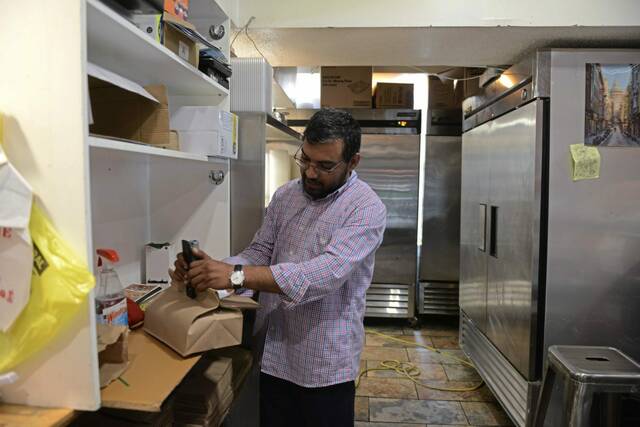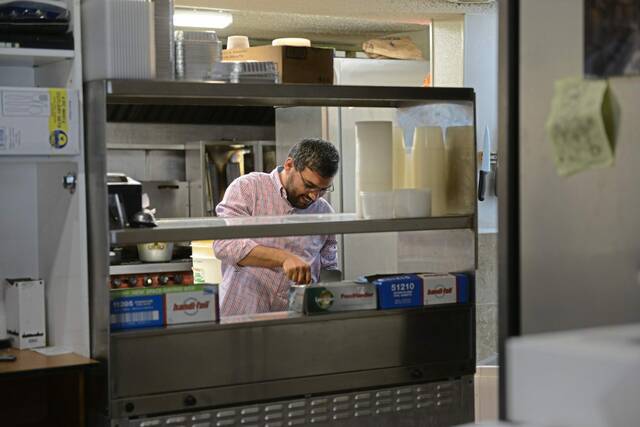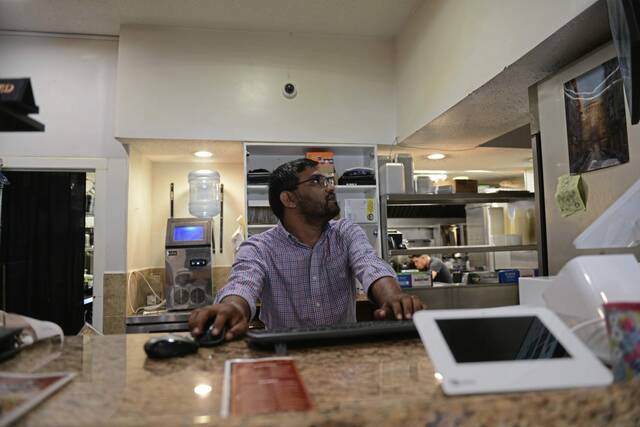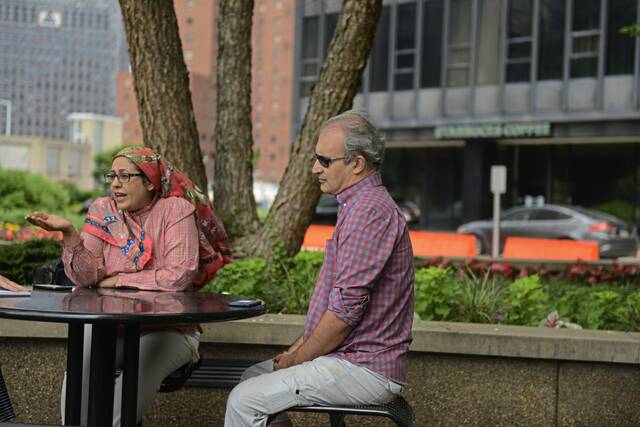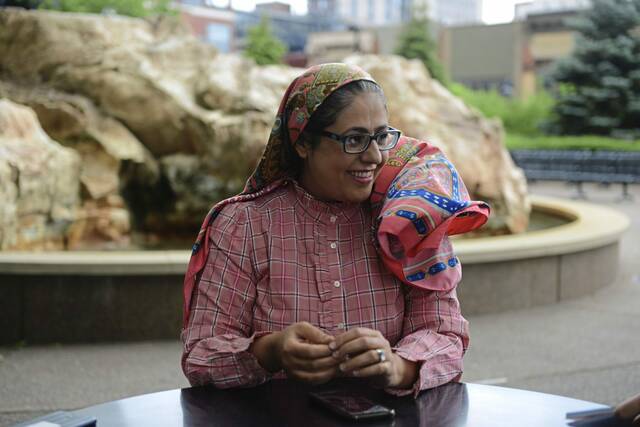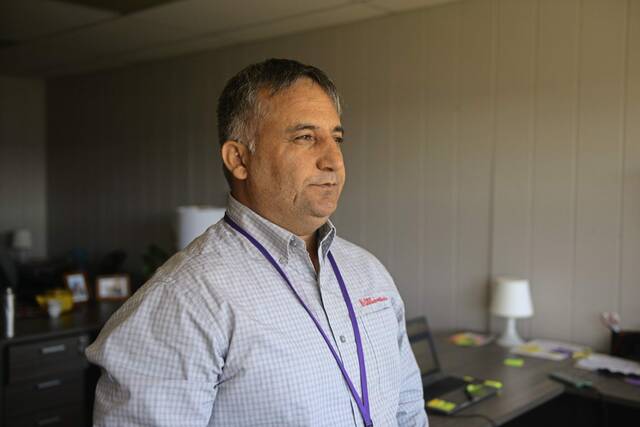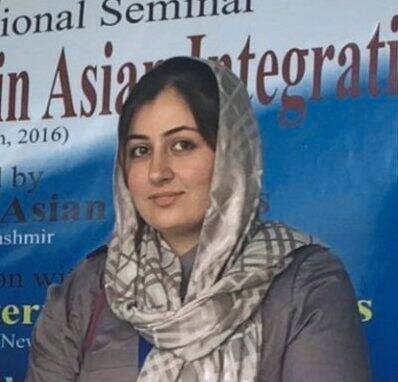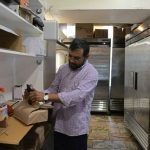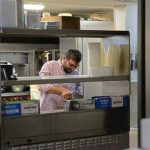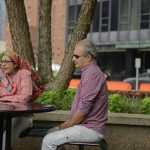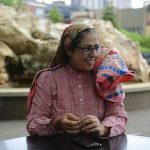After three months of living in Pittsburgh, Ahmad Yousofzay yearned to return to his native Afghanistan.
He had traveled here with his wife and three children in November 2017. They didn’t know anyone. Communicating with others was difficult.
In Afghanistan, Yousofzay was a man of importance. He had worked as a national procurement officer for former Afghan President Ashraf Ghani. In Pittsburgh, though, he struggled.
Today, Yousofzay is a prominent businessman. He owns the Turkish Grille in Oakland and works as a field engineer with a chemical company.
There are 785 Afghans who have arrived in Pittsburgh in the past year, according to Ivonne Smith-Tapia, director of refugee and immigrant services for Jewish Family and Community Services of Pittsburgh, a resettlement agency based in Squirrel Hill.
Yousofzay is proof that, despite the difficulties, refugees can successfully make the transition.
“It was a challenge because I didn’t drive or know how to take the bus or work an iPhone or how to ask people for things when I arrived,” said Yousofzay, 35, of Dormont, who now speaks fluent English. “I understand what (refugees) are going through. We need to take care of those who are here and also those who are still in Afghanistan. You have to work hard to be independent because there will be struggles.”
Yousofzay said he understands the stress of his fellow Afghans who arrived in Pittsburgh during the past year after the United States announced it was ending its military presence in Afghanistan. The Taliban took control of the Afghan capital, Kabul, on Aug. 15, 2021, as the Afghan government collapsed.
Though he had no experience, Yousofzay — who had applied for a special immigrant visa — landed a job working the night shift at a local hotel on Pittsburgh’s South Side. Even if someone doesn’t speak English, he said, that doesn’t mean they can’t work.
Related:
• A year after fall of Afghanistan, refugees adjust to new life in Pittsburgh
“I came because I wanted a better life for my kids,” said Yousofzay, as he waited tables, answered phones and packed to-go orders at his restaurant. “People here are helpful. I like it, and you have the opportunity you deserve.”
Knowing the challenges of refugees, he created a WhatsApp messaging group. There, fellow Afghan natives can find a ride to the store or a doctor’s appointment or find a place to learn English. He said at one time there were 200 people in the group. It currently has 160.
‘People in Pittsburgh are friendly’
Helping fellow refugees is a passion for Khesrow Hekmatjo, 43, of West Mifflin. He has been in the United States since 2015 — he worked as a personal assistant to former Afghan President Hamid Karzai — and has lived in Pittsburgh since November 2020.
He and his wife have four children. His first job in the U.S. was on a food truck in Maryland.
Today, Hekmatjo works for South Hills Interfaith Movement in Bethel Park as immigrant services and connections coordinator. At World Refugee Day in June at Schenley Plaza in Oakland, he said the United States is the most helpful country in the world and he feels safe here. He said most refugees still have family members in Afghanistan.
“I don’t take anything for granted,” Hekmatjo said. “It’s not magic. I know you have to earn it.
“There are barriers here, too, but you can’t let them stop you. It’s not impossible. Anything I have had to go through here is better than staying in Afghanistan. People in Pittsburgh are friendly, and they are helpful.”
‘This is a blessing’
Hasina Jalal, 28, of Point Breeze said the human side is what inspires her.
She came to the U.S. from Afghanistan to study. Jalal earned a master’s degree at the University of Northern Iowa and took classes at the School of Foreign Service at Georgetown University for a semester before settling in Western Pennsylvania in 2021 to study for her doctorate in public and international affairs at the University of Pittsburgh.
Her dream is to teach and continue her activism for human rights, democracy and justice. She is a research associate with the Afghanistan Project in the Center for Governance and Markets at Pitt.
She had planned to go home to Afghanistan in May 2021 to visit, but she said she decided against it because she feared persecution.
In January, her father, Faizullah Jalal, a professor at Kabul University and a prominent public figure, was arrested for criticizing the Taliban in media, she said. He had refused to leave with the rest of the family in August because, Hasina Jalal said, of his love for his people and his country.
She said her mother and siblings have been in the Netherlands since August. Her father, she said, was able to leave in April.
She said her Pitt professors and the graduate school community have been supportive.
“I am getting integrated to Pittsburgh people and culture, and I am loving it,” Jalal said. “I appreciate the opportunity to live, work and study in the United States and to continue to serve Afghan people from far through my scholarship and my activism. This is a blessing and a privilege.
“It is our job as fellow Afghans to serve other Afghan people and connect them to the community so they feel welcome and know that people love them. We are all humans. And it’s about connecting humans to humans and getting people what they need.”
• • •
Iran native lends a hand
A native of Iran, Tahereh Hooshangi, 44, of Uptown came to Pittsburgh in 2016 when her husband, Siavash Asadi, was hired as a researcher at Duquesne University.
“When I came, there was a language barrier,” Hooshangi said. “I had a lack of confidence and was a completely different person. … I was a journalist and am (an) ambitious woman.”
She decided to volunteer as a tutor with Literacy Pittsburgh and got connected to Jewish Family and Community Services. She knows Dari, a language in Afghanistan that is similar to Iran’s language of Persian, and helps as a translator for new Afghan refugees.
She recently helped a woman from Afghanistan who was giving birth at UPMC Magee-Womens Hospital in Oakland and had no family.
“I went to the hospital and I helped her — not just with the language but emotionally, too,” Hooshangi said.
She said she does more than interpret. She is a friend.
“Sometimes I cry more than they do,” Hooshangi said. “That is part of being human. They need someone to talk to, and I don’t want them to feel alone. In a new country, we have new obstacles, new barriers. I don’t always have the words to share what I am feeling. I see similar worries in their faces.”
Hooshangi can relate to being away from loved ones. When family members died from the coronavirus, she went to Calvary Catholic Cemetery in Hazelwood and Allegheny Cemetery in Lawrenceville.
She needed a place to grieve.
“I was so devastated,” she said. “I went to those cemeteries and walked around and cried. Basic things can be very complicated. People in the U.S. and in Pittsburgh respect one another and help each other and look at the human side of people.”


